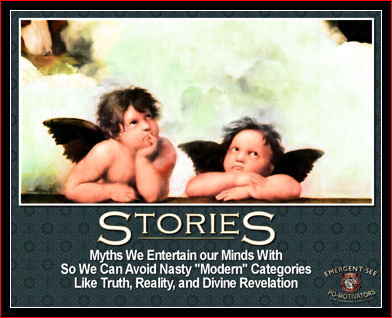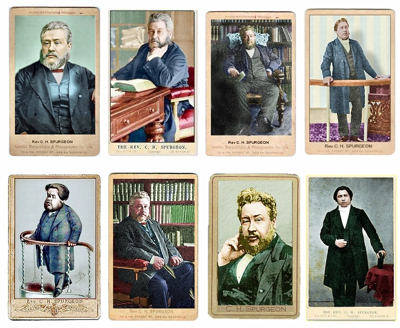by Phil Johnson
 arlier in the week,
arlier in the week, we began observing a series of surprising plot-turns in 1 Kings 17:17-24. Elijah's presence in a widow's home had resulted in
life-saving daily provisions for her. But then, unexpectedly, her little boy died. In response, she angrily and uncharacteristically lashed out at Elijah. In the process made a stunning confession of her own guilt.

Elijah's response is
also surprising. Verse 19: "And he said unto her, Give me thy son. And he took him out of her bosom, and carried him up into a loft, where he abode, and laid him upon his own bed."
Elijah was by nature a man of strong passion. He was on occasion a hot-tempered man. In 1 Kings 18, we read about Elijah taking vengeance against the wicked prophets of Baal by killing 850 of Jezebel's favorite Baal-priests. In 2 Kings 1, he calls down fire from heaven twice, and each time he destroyed a company of fifty men. Elijah had little patience with sinful unbelief. He was not generally known for gentleness when he responded to the taunts and challenges of unbelievers.
But his answer to this grieving widow's angry outburst was the very model of a soft answer that turns away wrath. He took no notice whatsoever of her insulting and unkind words. His entire reply to her is only two words in the Hebrew. "Give me your son."
And with that, he took the boy's corpse and retired to his room in the attic of the woman's house, where he would pour out his deepest passions alone before God.
We might have expected a fiery prophet like Elijah to answer the widow firmly and possibly harshly. But instead, his response was tender and compassionate and gentle.
Elijah's own grief in this situation is obviously profound. And in fact, his prayer to God is yet another surprise:
"And he cried unto the LORD, and said, O LORD my God, hast thou also brought evil upon the widow with whom I sojourn, by slaying her son? And he stretched himself upon the child three times, and cried unto the LORD, and said, O LORD my God, I pray thee, let this child's soul come into him again" (1 Kings 17:20-21).
The prayer is surprising for several reasons—most notably the boldness of Elijah's request. No one in the history of the world had ever before died, and then been resuscitated from the dead. This is the first incident in scripture where a dead person came back to life.
So it took an extraordinarily bold faith for Elijah to ask for such a thing. But I also want you to notice the surprising way he sought this miracle from God.
First, he did his praying entirely in private. He didn't exploit this incident for publicity. He didn't make any public display of raising the boy from the dead. Even after the miracle occurred, he didn't parade the boy in public as an example of his miracle powers. Instead, he went through this whole ordeal in the privacy of his own loft, which was the most private venue he knew.
In fact, Elijah seems to have deliberately prayed in complete solitude for this miracle. He didn't even invite the widow to join him in prayer. He took the matter to God alone. Remember, "The effectual fervent prayer of a righteous man availeth much." (James 5:16). It's not necessary to enlist everybody you know to pray in order to get answers to your prayers—as if God could be persuaded by popular opinion. Jesus expressly taught that being wordy or ostentatious will not help our prayers be heard. Neither will dragging private matters into a public venue. Matthew 6:6: "Thou, when thou prayest, enter into thy closet, and when thou hast shut thy door, pray to thy Father which is in secret; and thy Father which seeth in secret shall reward thee openly." That was exactly Elijah's approach in this situation.
What is even more remarkable here is the way Elijah took that dead child from his mother into his own heart. Remember that in Old Testament Israel, the bodies of the dead were ceremonially defiling. Because this was such a defiling thing, the law expressly prohibited priests from ever touching any dead bodies. Here's Leviticus 21:1-4:
And the LORD said unto Moses, Speak unto the priests the sons of Aaron, and say unto them, There shall none be defiled for the dead among his people: But for his kin, that is near unto him, that is, for his mother, and for his father, and for his son, and for his daughter, and for his brother, And for his sister a virgin, that is nigh unto him, which hath had no husband; for her may he be defiled. But he shall not defile himself, being a chief man among his people, to profane himself.
Even among non-priests, no one would normally touch a dead body except for the family members who were responsible to prepare the body for burial.

So by clasping this little boy's body to his heart, Elijah was breaking Jewish convention. But he was in effect accepting this widow and her son as his own family—even though the woman was a Gentile from a pagan background. He was bearing her burden. He was sharing in her grief. And the threat of ceremonial defilement would not deter him from this gesture of identification with that woman and her son.
So Elijah carried the lifeless boy up into his loft and laid him on his own bed. And there, it says, "He stretched himself upon the child three times, and cried unto the LORD." Here was total identification with the dead child.
A generation later, in similar circumstances, Elijah's successor, Elisha, had occasion to pray for the life of another little boy who died. Second Kings 4 describes that incident. And it says Elisha "went in . . . and shut the door upon them twain, and prayed unto the LORD. And he went up, and lay upon the child, and put his mouth upon his mouth, and his eyes upon his eyes, and his hands upon his hands: and he stretched himself upon the child; and the flesh of the child [became] warm."
That's the same picture we get of Elijah here—stretched out over the child, mouth to mouth, hands to hands, as if he himself wanted to breathe into the corpse the breath of life again, and as if the warmth of his body could be transferred back to the cold corpse and revive the boy.
And Elijah passionately besought God, "O LORD my God, I pray thee, let this child's soul come into him again."
May I point out what a perfect illustration this boy is of the plight of unbelievers? Scripture says they are dead in trespasses and sins (Ephesians 2:1). Here is the very picture of death. This boy was no longer capable of responding to any stimulus. Despite the intensity of his passions, regardless of how many times Elijah stretched out on him or tried to restore warmth to his cold body, that corpse had no ability whatsoever to respond. Only God could restore life to the dead boy. And until God
did restore the soul to the body, all Elijah's techniques were utterly powerless to elicit a response.
That is precisely how it is with unbelievers. They are spiritually dead, and nothing but the sovereign work of God in their hearts can awaken them from that state. All our tender pleading and evangelistic appeals are fruitless unless God sovereignly regenerates that person. We were not born again in response to our faith. Rather, it was the regenerating work of God in our hearts that elicited the response of faith.
Someone will inevitably ask, "Then what's the point of evangelism? What's the point of pleading with the lost to believe? Why should we expend any effort at all witnessing to people who have no capacity to respond unless God first awakens them to faith?
You might as well ask why Elijah went through the motions of stretching himself out over this child. Could God have raised the child without Elijah's body heat? Of course. But these were the means through which God chose to work. He allowed Elijah to participate in the miracle. That does not diminish the fact that the regenerating work that took place was the work of God and God alone.
So it is with our salvation. God uses external means. He employs His word and the gospel message to reason with sinners, to plead with them, and to beseech them to be reconciled to God. But apart from a miracle of regeneration, not one sinner would ever respond to the gospel plea. Remember that when you're sharing the gospel, and be sure to do what Elijah did here: take the case to God, and ask Him to work that miracle of regeneration and open the unbeliever's heart to receive the truth. Otherwise you are merely pleading with a spiritual corpse.
Elijah's prayer of faith was answered. Here's the final surprise in this chapter:
And the LORD heard the voice of Elijah; and the soul of the child came into him again, and he revived. And Elijah took the child, and brought him down out of the chamber into the house, and delivered him unto his mother: and Elijah said, See, thy son liveth. And the woman said to Elijah, Now by this I know that thou art a man of God, and that the word of the LORD in thy mouth is truth (vv. 22-24).
The child comes back to life. I'll confess to you that if I had been standing there watching this scene, I would have been thinking it was utterly hopeless.
After all, why did God allow the boy to die in the first place, if His purpose was only to bring him to life again?
And by the way, for any skeptics inclined to think this was merely a near-death experience, and Elijah raised the boy with a kind of rudimentary CPR treatment, the language of Scripture is clear. The boy was dead. His soul had departed from his body.
Remember, this was the first-ever case of anyone returning from the dead. Yet Elijah's faith staggered not at the magnitude of the miracle he was seeking from God.
He knew God to be gracious, compassionate, and righteous. And so he pleaded with God on the basis of those attributes. He could not fathom that it would be God's ultimate purpose to kill this widow's only son after she had shown hospitality to God's prophet. So he was emboldened to pray that God would return the boy's life.
God granted the miracle.
Notice the woman's testimony: "Now by this I know that thou art a man of God, and that the word of the LORD in thy mouth is truth."
Whether she was a genuine believer
prior to this incident is not clear. Some commentators say no; others say yes. It may be that she had already come to saving faith, but her faith was weak and immature. Or this may be the first genuine expression of genuine faith in her heart. Either way, this miracle had the effect of strengthening her faith and deepening her assurance.
So what began as a dark providence and a painful tragedy ends with this woman glorifying God and celebrating His bountiful goodness.
And I especially like Elijah's response. He just hands her the boy and says, "Look. Your son is alive." Always a man of few words. But you can bet that inside, he was as deliriously happy and as grateful as the widow.
Next week, I'll post a series of short practical applications drawn from this passage.

 For instance, I've actually very recently gone back to drumming. (Cue our Bill Gothard alum readers.) Listening to Chicago's Danny Seraphine in my teens got me interested in drumming, and my longsuffering parents let me purchase a drum set. As in so many things, I was too undisciplined to stick with lessons, but I wailed away on my own in my room, until I was probably somewhere around "barely adequate." Then, after my conversion, the ministry I was under told me rock was bad, so I got rid of the drums.
For instance, I've actually very recently gone back to drumming. (Cue our Bill Gothard alum readers.) Listening to Chicago's Danny Seraphine in my teens got me interested in drumming, and my longsuffering parents let me purchase a drum set. As in so many things, I was too undisciplined to stick with lessons, but I wailed away on my own in my room, until I was probably somewhere around "barely adequate." Then, after my conversion, the ministry I was under told me rock was bad, so I got rid of the drums.By the word of the LORD the heavens were made,







 apply to other portions of Scripture —
apply to other portions of Scripture —  Now, each verse stands on its own two feet, makes perfect sense, and could be expounded irrespective of the others.
Now, each verse stands on its own two feet, makes perfect sense, and could be expounded irrespective of the others.
 by Frank Turk
by Frank Turk

 inistry duties have brought me to New Jersey this week. Today just before lunchtime, I'm going to be meeting with a group of pastors and church leaders who have asked me to join them for a conversation about the Emerging Church. It's an impromptu meeting that wasn't originally part of my schedule for the week, and I'm not personally acquainted yet with any of the pastors who have asked for the meeting, so I don't quite know what to expect.
inistry duties have brought me to New Jersey this week. Today just before lunchtime, I'm going to be meeting with a group of pastors and church leaders who have asked me to join them for a conversation about the Emerging Church. It's an impromptu meeting that wasn't originally part of my schedule for the week, and I'm not personally acquainted yet with any of the pastors who have asked for the meeting, so I don't quite know what to expect.


 Providence is characterized by many unexpected twists and turns. This reminds us that God's ways are mysterious and beyond human scrutiny—so that all we can know for sure about God's sovereign dealings with us is that His purposes are always righteous.
Providence is characterized by many unexpected twists and turns. This reminds us that God's ways are mysterious and beyond human scrutiny—so that all we can know for sure about God's sovereign dealings with us is that His purposes are always righteous. It's always interesting (isn't it?) to look back on an episode like this and marvel at the wisdom and goodness of God, who can bring so much eternal good out of a moment of tragedy. But real faith is to be able to trust Him in the midst of the tragedy—before we see the final outcome—and rest in the assurance that He does all things well.
It's always interesting (isn't it?) to look back on an episode like this and marvel at the wisdom and goodness of God, who can bring so much eternal good out of a moment of tragedy. But real faith is to be able to trust Him in the midst of the tragedy—before we see the final outcome—and rest in the assurance that He does all things well.

 CERTAIN Dr. J. Mortimer Granville gives a word of advice about dreams. He says:
CERTAIN Dr. J. Mortimer Granville gives a word of advice about dreams. He says: At any rate, let something be done to stop this dreaming. Our philosophical youths, who wear the cap of Liberty by day, have only to keep it on by night, and their cerebral organs, being delivered from the rush of blood, will be unloaded, and enjoy a little rest.
At any rate, let something be done to stop this dreaming. Our philosophical youths, who wear the cap of Liberty by day, have only to keep it on by night, and their cerebral organs, being delivered from the rush of blood, will be unloaded, and enjoy a little rest.
 readers do include some (variously) published authors, this seems like a good topic for us to bat around here.
readers do include some (variously) published authors, this seems like a good topic for us to bat around here. e've been defending the judicious use of sarcasm, and I have been personally been amazed (and appalled) to see that some
e've been defending the judicious use of sarcasm, and I have been personally been amazed (and appalled) to see that some  Christians think sarcasm is always a vice. In fact, some on the Emerging side of the blogosphere are evidently convinced sarcasm is a worse vice than cusswords and deliberate nastiness.
Christians think sarcasm is always a vice. In fact, some on the Emerging side of the blogosphere are evidently convinced sarcasm is a worse vice than cusswords and deliberate nastiness. arlier in the week,
arlier in the week, Elijah's response is also surprising. Verse 19: "And he said unto her, Give me thy son. And he took him out of her bosom, and carried him up into a loft, where he abode, and laid him upon his own bed."
Elijah's response is also surprising. Verse 19: "And he said unto her, Give me thy son. And he took him out of her bosom, and carried him up into a loft, where he abode, and laid him upon his own bed." So by clasping this little boy's body to his heart, Elijah was breaking Jewish convention. But he was in effect accepting this widow and her son as his own family—even though the woman was a Gentile from a pagan background. He was bearing her burden. He was sharing in her grief. And the threat of ceremonial defilement would not deter him from this gesture of identification with that woman and her son.
So by clasping this little boy's body to his heart, Elijah was breaking Jewish convention. But he was in effect accepting this widow and her son as his own family—even though the woman was a Gentile from a pagan background. He was bearing her burden. He was sharing in her grief. And the threat of ceremonial defilement would not deter him from this gesture of identification with that woman and her son. ere's part of a discussion I had with a quasi-regular commenter who asked some questions about my stance against blending ministry with politics. I've edited it slightly to correct a couple of misspellings, to keep my interlocutor anonymous, to abbreviate some redundancies, to stress a point or two, and to add the quotation that I initially referred to and couldn't produce off the top of my head:
ere's part of a discussion I had with a quasi-regular commenter who asked some questions about my stance against blending ministry with politics. I've edited it slightly to correct a couple of misspellings, to keep my interlocutor anonymous, to abbreviate some redundancies, to stress a point or two, and to add the quotation that I initially referred to and couldn't produce off the top of my head:

 On the first topic, here's what I'm thinking: it is possible that your essay is correct in its assessment of the plethora of organizations that are critical (particularly) of the American Christian landscape. But problematically, your essay does what it sets out to criticize. For example, you broad-brush the matter of what kind of criticism is out there by putting all kinds of criticism in the same bucket. You equate criticizing Joel Osteen with KJVO enthusiasm – trying, I guess, to demonstrate how backwards and uninformed these opinions must be.
On the first topic, here's what I'm thinking: it is possible that your essay is correct in its assessment of the plethora of organizations that are critical (particularly) of the American Christian landscape. But problematically, your essay does what it sets out to criticize. For example, you broad-brush the matter of what kind of criticism is out there by putting all kinds of criticism in the same bucket. You equate criticizing Joel Osteen with KJVO enthusiasm – trying, I guess, to demonstrate how backwards and uninformed these opinions must be. See: one's criticism ought to be able to both demonstrate the problem and outline or present the solution to that problem – and in doing so, perhaps it ought to in and of itself be an example of what it's talking about. So if your concern, for example, is how mean it is to publicly criticize other Christians, and how confused that makes non-Christians and the marginally-churched, I'm not sure that publishing that essay publicly dispels the problem: it is by definition part of the problem because it is a public criticism of other Christians.
See: one's criticism ought to be able to both demonstrate the problem and outline or present the solution to that problem – and in doing so, perhaps it ought to in and of itself be an example of what it's talking about. So if your concern, for example, is how mean it is to publicly criticize other Christians, and how confused that makes non-Christians and the marginally-churched, I'm not sure that publishing that essay publicly dispels the problem: it is by definition part of the problem because it is a public criticism of other Christians. Let me say something plainly: if this problem was resolved in popular public discourse, it would be the end of most of the hard feelings in both the blogosphere and in public life. And those who trade in this currency are the real villains, the ones who are actually moving public conversations away from civility and toward intellectual warfare.
Let me say something plainly: if this problem was resolved in popular public discourse, it would be the end of most of the hard feelings in both the blogosphere and in public life. And those who trade in this currency are the real villains, the ones who are actually moving public conversations away from civility and toward intellectual warfare. on June 27. The title was "Preaching the Truth of the Cross for the Modern Age." M'man Frank Turk live-blogged it, and you should
on June 27. The title was "Preaching the Truth of the Cross for the Modern Age." M'man Frank Turk live-blogged it, and you should  From that previous revelation, we know about ourselves, made in the image of God, a people who are willingly sightless. So when John 3:16 was penned, this message of the Cross was positioned to connect with these other foundational truths, without which the message of the Cross is incomprehensible.
From that previous revelation, we know about ourselves, made in the image of God, a people who are willingly sightless. So when John 3:16 was penned, this message of the Cross was positioned to connect with these other foundational truths, without which the message of the Cross is incomprehensible. 'll occasionally notice a particularly nice comment in the combox of an old thread here at
'll occasionally notice a particularly nice comment in the combox of an old thread here at 










